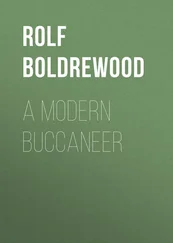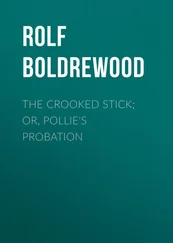Rolf Boldrewood - The Ghost Camp
Здесь есть возможность читать онлайн «Rolf Boldrewood - The Ghost Camp» — ознакомительный отрывок электронной книги совершенно бесплатно, а после прочтения отрывка купить полную версию. В некоторых случаях можно слушать аудио, скачать через торрент в формате fb2 и присутствует краткое содержание. Жанр: foreign_antique, foreign_prose, на английском языке. Описание произведения, (предисловие) а так же отзывы посетителей доступны на портале библиотеки ЛибКат.
- Название:The Ghost Camp
- Автор:
- Жанр:
- Год:неизвестен
- ISBN:нет данных
- Рейтинг книги:3 / 5. Голосов: 1
-
Избранное:Добавить в избранное
- Отзывы:
-
Ваша оценка:
- 60
- 1
- 2
- 3
- 4
- 5
The Ghost Camp: краткое содержание, описание и аннотация
Предлагаем к чтению аннотацию, описание, краткое содержание или предисловие (зависит от того, что написал сам автор книги «The Ghost Camp»). Если вы не нашли необходимую информацию о книге — напишите в комментариях, мы постараемся отыскать её.
The Ghost Camp — читать онлайн ознакомительный отрывок
Ниже представлен текст книги, разбитый по страницам. Система сохранения места последней прочитанной страницы, позволяет с удобством читать онлайн бесплатно книгу «The Ghost Camp», без необходимости каждый раз заново искать на чём Вы остановились. Поставьте закладку, и сможете в любой момент перейти на страницу, на которой закончили чтение.
Интервал:
Закладка:
“Yes! nothing could be better. My appetite seems improving already.”
The Kookaburra chorus, and the flute accompaniment of the magpies in the neighbouring tree tops, awakened Mr. Blount, who had not so much as turned round in bed since about five minutes after he had deposited himself between the clean lavender-scented sheets. Looking out, he faintly discerned the dawn light, and also that the face of the country was as white as if it had been snowing. He heard voices in the verandah, and saw Little-River-Jack’s horse led out, looking as fresh as paint. That gentleman, lighting his pipe carefully, mounted and started off at a fast amble up the road which skirted the range, and led towards a gap in the hills. Mr. Blount thought it would be as well to wait until Sheila had the fire well under way, by which he intended to toast himself after the arctic discipline of the shower bath, with the thermometer at 28 degrees Fahrenheit.
The bi-weekly mail had providentially arrived at breakfast time, bringing in its bags the local district newspaper, and a metropolitan weekly which skimmed the cream from the cables and telegrams of the day. This was sufficiently interesting to hold him to the arm-chair, in slippered ease, for the greater part of an hour, while he lingered over his second cup of tea.
His boots, renovated from travel stains and mud, standing ready, he determined on a stroll, and took counsel with Sheila, as to a favourable locality.
The damsel was respectful, but conversed with him on terms of perfect conversational equality. She had also been fairly educated, and was free from vulgarity of tone or accent. To him, straight from the old country, a distinctly unfamiliar type worth studying.
“Where would you advise me to go for a walk?” he said. “It’s good walking weather, and I can’t sit in the house this fine morning, though you have made such a lovely fire.”
“I should go up the creek, and have a look at the sluicing claim. People say it’s worth seeing. You can’t miss it if you follow up stream, and you’ll hear the ‘water gun’ a mile before you come to it.”
“‘Water gun?’ What ever is that?”
“Oh! it’s the name of a big hose with a four-inch nozzle at the end. They lead the water for the race into it, and then turn it against the creek bank; that undermines tons of the stuff they want to sluice – you’ll hear it coming down like a house falling!”
“And what becomes of it then?”
“Oh! it goes into the tail-race, and after that it’s led into the riffles and troughs – the water keeps driving along, and they’ve some way of washing the clay and gravel out, and leaving the gold behind.”
“And does it pay well?”
“They say so. It only costs a penny a ton to wash, or something like that. It’s the cheapest way the stuff can be treated. Our boys saw it used in California, and brought it over here.”
So, after taking a last fond look at the cob, and wishing he could exchange him for Keewah, but doubting if any amount of boot would induce Carter to part with his favourite, he set out along the bank of the river and faced the uplands.
His boots were thick, his heart was light – the sun illumined the frost-white trunks, and diamond-sprayed branches of the pines and eucalypts – the air was keen and bracing. “What a glorious thing it is to be alive on a day like this,” he told himself. “How glad I am that I decided to leave Melbourne!” As he stepped along with all the elasticity of youth’s high health and boundless optimism, he marked the features of the land. There were wheel-tracks on this road, which he was pleased to note. Though the soil was rich, and also damp at the base of the hills and on the flats, it was sound, so that with reasonable care he was enabled to keep his feet dry. He saw pools from which the wild duck flew on his approach. A blue crane, the heron of Australia ( Ardea ) rose from the reeds; while from time to time the wallaroo (the kangaroo of the mountain-side) put in appearance to his great delight.
The sun came out, glorifying the wide and varied landscape and the cloudless azure against which the snow-covered mountain summits glittered like silver coronets. Birds of unknown note and plumage called and chirped. All Nature, recovering from the cold and darkness of the night, made haste to greet the brilliant apparition of the sun god.
Keeping within sight of the creek – the course of which he was pledged to follow – he became aware of a dull monotonous sound, which he somehow connected with machinery. It was varied by occasional reports like muffled blasts, as of the fall of heavy bodies. “That is the sluicing claim,” he told himself, “and I shall see the wonderful ‘water gun,’ which Sheila told me of. Quite an adventure!” The claim was farther off than he at first judged, but after climbing with stout heart a “stey brae,” he looked down on the sluicing appliances, and marvelled at the inventive ingenuity which the gold industry had developed. Before him was a ravine down which a torrent of water was rushing with great force and rapidity, bearing along in its course clay, gravel, quartz, and even boulders of respectable size.
He was civilly received by the claim-holders; the manager – an ex-Californian miner – remarking, “Yes, sir, I’m a ‘forty-niner,’ – worked at Suttor’s Mill first year gold was struck there. This is a pretty big thing, though it ain’t a circumstance to some I’ve seen in Arizona and Colorado. This water’s led five hundred feet from these workings. See it play on the face of the hill-side yonder – reckon we’ve cut it away two hundred feet from grass.”
Mr. Blount looked with amazement at the thin, vicious, thread of water, which, directed against the lower and middle strata of the mass of ferruginous slate, had laid bare the alluvium through which ran an ancient river, silted up and overlaid for centuries. The course of this long dead and buried stream could be traced by the water-worn boulders and the smoothness of the rocks which had formed its bed. Where he stood, there had been a fall of forty feet as shown by the formation of the rocky channel.
The manager civilly directed the “gunner” to lower the weapon, and aim it at a spot nearer to where Blount was standing. He much marvelled to see the stones torn from the “face” and sent flying in the air, creating a fair-sized geyser where the water smote the cliff. In this fashion of undermining hundreds of tons are brought down from time to time, to be driven by the roaring torrent into the “tail-race,” whence they pass into the “sluice-box,” and so on to the creek, leaving the gold behind in the riffle bars.
“I suppose it’s not an expensive way of treating the ore in the rough?” queried Blount.
“I reckon not. Cheapest way on airth. The labour we pay at present only comes to one man to a thousand yards. This company has been paying dividends for fifteen years!”
Mr. Blount thanked the obliging American, who, like all respectable miners, was well-mannered to strangers, the sole exception being in the case of a party that have “struck gold” in a secluded spot, and naturally do not desire all the world to know about it. But even they are less rude than evasive.
He looked at his watch and decided that he had not more than enough time to get back to Bunjil in time for lunch. So he shook hands with Mr. Hiram Endicott and set out for that nucleus of civilisation.
Making rather better time on the return journey, he arrived much pleased with himself, considering that he had accomplished an important advance in bush-craft and mineralogy.
Sheila welcomed him in a clean print dress, with a smiling face, but expressed a faint surprise at his safe return, and at his having found the road to the sluice-working, and back.
Читать дальшеИнтервал:
Закладка:
Похожие книги на «The Ghost Camp»
Представляем Вашему вниманию похожие книги на «The Ghost Camp» списком для выбора. Мы отобрали схожую по названию и смыслу литературу в надежде предоставить читателям больше вариантов отыскать новые, интересные, ещё непрочитанные произведения.
Обсуждение, отзывы о книге «The Ghost Camp» и просто собственные мнения читателей. Оставьте ваши комментарии, напишите, что Вы думаете о произведении, его смысле или главных героях. Укажите что конкретно понравилось, а что нет, и почему Вы так считаете.












